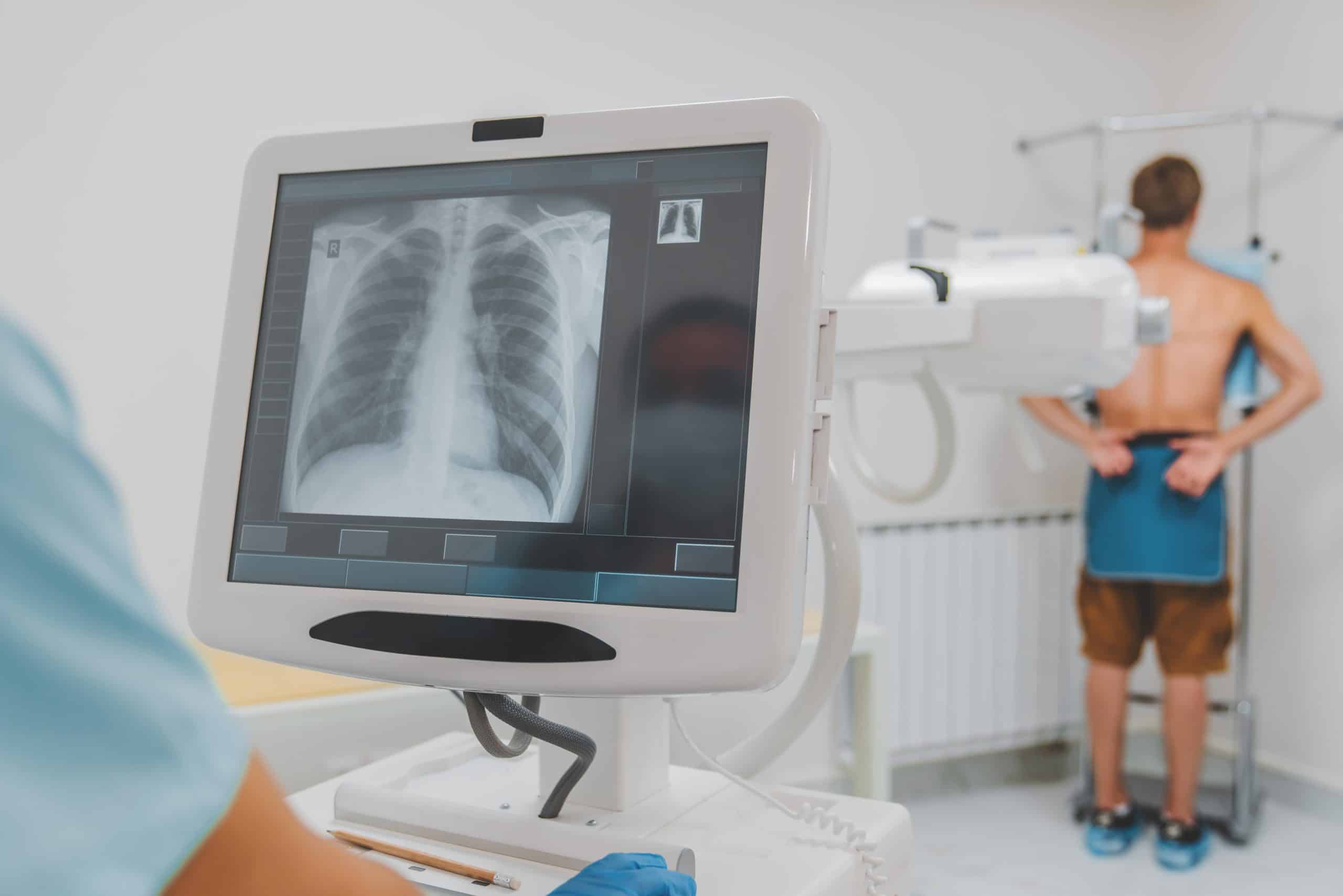If you’re worried about cancer and wondering whether an X-ray can detect it, you’re not alone. Many patients in Brampton and Bramalea ask this important question before scheduling a scan. Let’s break down what X-rays can and can’t do when it comes to finding tumors and how they compare to other cancer imaging tests.
Can an X-ray detect cancer?
Yes, but only in some cases. X-rays can help detect certain types of cancer, especially if the tumor affects bones or creates changes in tissues that show up on the scan. However, X-rays are not the most accurate test for spotting all cancers. They are usually a starting point in the cancer screening process.
Here’s what X-rays may reveal:
- Lung tumors or abnormal masses in the chest
- Bone tumors or areas where cancer has spread to bones
- Swollen lymph nodes in some cases
- Unusual shadows or changes in soft tissue
But X-rays can’t show everything. Some tumors are too small or hidden behind other structures. That’s why doctors may follow up with other imaging tests like CT scans, MRIs, or ultrasounds.
How do X-rays help in cancer diagnosis?
X-rays are often used as a first imaging step when patients have cancer symptoms like pain, swelling, or unexplained weight loss. They are fast, non-invasive, and can give doctors clues about what’s going on inside your body.
Here’s how they help:
- Identify areas that look abnormal
- Guide further testing if something suspicious shows up
- Monitor known tumors for changes in size or shape
- Check bones for possible cancer spread
If your doctor orders a diagnostic X-ray for cancer symptoms, it may lead to other tests to confirm a diagnosis.
What types of cancer can be seen on X-ray?
Some cancers are more likely to appear on an X-ray, such as:
- Lung cancer (mass or fluid in the lungs)
- Bone cancer (holes or damage in the bone)
- Breast cancer (if using a special X-ray called a mammogram)
- Stomach or colon tumors (in rare cases, with contrast dye)
Keep in mind that many internal organ cancers do not show clearly on standard X-rays. That’s why radiologists use multiple tools to get a full picture.
X-ray vs other cancer tests
X-rays are just one part of cancer imaging. Depending on your symptoms and medical history, your doctor may recommend other tests, including:
- CT scans for more detailed cross-section images
- MRI for soft tissue and brain tumors
- Ultrasound for breast, liver, or pelvic issues
- PET scans to detect cancer spread or recurrence
Choosing the right scan depends on where the cancer might be and what kind of detail is needed. You can also compare cancer imaging tests with your healthcare provider to make the best choice.
When is an X-ray the right test?
Your doctor might suggest an X-ray if you:
- Have a persistent cough or chest pain
- Experience bone pain that won’t go away
- Notice a lump or swelling
- Have symptoms that suggest a fracture or growth
In these cases, an X-ray cancer screening appointment helps start the process of diagnosis quickly. If the results show something unusual, more advanced imaging can be scheduled.
What happens after the scan?
Once your X-ray is done, a radiologist will read the images and prepare a radiology report for cancer. This report is sent to your doctor, who will discuss the next steps with you. If anything looks abnormal, they may schedule a CT or MRI and refer you to a cancer specialist.
Need to book an imaging test for cancer?
If you’re in Brampton or Bramalea and need to schedule a cancer X-ray scan or compare cancer imaging tests, Valence Medical Imaging is here to help. We provide fast, reliable diagnostic X-rays and work closely with your healthcare team.
Here’s how to get started:
- Call to book your X-ray cancer screening appointment
- Ask about diagnostic X-rays for cancer symptoms
- Request a full-body X-ray for tumors if recommended by your doctor
- Find the best cancer imaging center near you for expert care
- Consult our radiologist for cancer screening options that suit your needs
We understand how important early detection is. Our team is ready to support you every step of the way with clarity, compassion, and expert imaging services.




